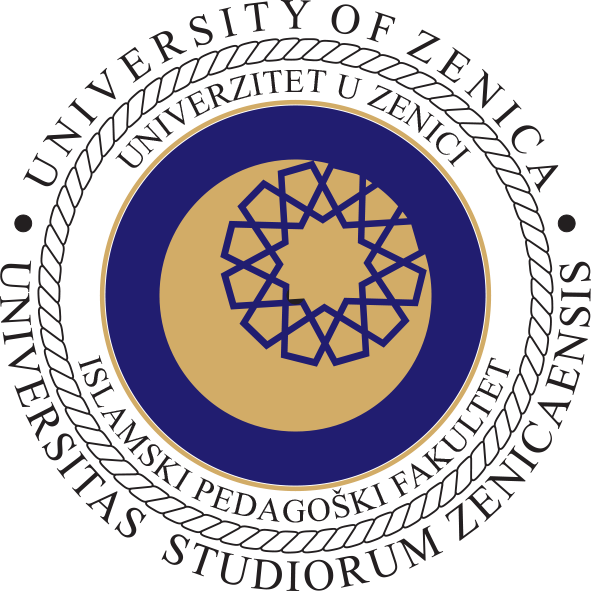RELIGIJSKOPEDAGOŠKA KONCEPTUALIZACIJA LUKMANOVIH SAVJETA
U religijskopedagoškoj perspektivi ljudsko srce (el-kalb) je centralni objekt odgojnih interesa, a njegova odgojno relevantna konstitutivna osobenost je sloboda. Budući da se autentičan i odgovoran razvoj religijske svijesti može realizirati isključivo u zoni slobode, onda je, s tog stanovišta posmatrano, moguće razumjeti religij...
By Muamer Neimarlija
Religious pedagogical conceptualization of the qur'anic description of slander
From the perspective of Islamic theological thought, every sin, in addition to otherworldly consequences, produces some damage in this world. Sins the effect of which is limited to an individual have the potential to affect negatively one’s spiritual and physical constitution, while sins in the sphere of interpersonal relationships destroy the soci...
By Muamer Neimarlija
THE RECEPTION OF THE QUR’AN AND HADITH ENCOURAGEMENT FOR SCIENCE DEVELOPMENT IN THE CLASSICAL AND MODERN ISLAMIC WORLD
The aim of the current paper is to compare the reception of the Qur’an and Hadith texts related to science in the classical and modern world of Islamic culture. For this purpose, we have made the reinterpretation of certain texts related to science, within the constituent sources of Islam, the Qur’an and the Sunnah of Muhammad s.a.w.s., on the one ...
By Muamer Neimarlija
THE RECEPTION OF THE QUR’AN AND HADITH ENCOURAGEMENT FOR SCIENCE DEVELOPMENT IN THE CLASSICAL AND MODERN ISLAMIC WORLD
The aim of the current paper is to compare the reception of the Qur’an and Hadith texts related to science in the classical and modern world of Islamic culture. For this purpose, we have made the reinterpretation of certain texts related to science, within the constituent sources of Islam, the Qur’an and the Sunnah of Muhammad s.a.w.s., on the one ...
By Muamer Neimarlija
ARROGANCE AS A GENERATOR OF HUMAN (SELF)DESTRUCTION – THE QUR’ANIC PERSPECTIVE
The specific characteristic of the mental constitution of humans and jinns, in comparison to other creatures of Allah, is the freedom of will. The principle of human free will is displayed through their constructive or destructive behavior toward themselves and/or their overall environment. Taking into consideration the origin of will, it might be ...
By Muamer Neimarlija
KUR’ANSKA PERSPEKTIVA (DIS)POZICIJSKOG KARAKTERA ODGAJATELJEVOG AUTORITETA
In order to light up certain micropedagogical relations in this paper, we try to look at education through the prism of the peculiarities of interaction of essential factors of the educational process - educator and educatee. In doing so, the focus of our interest is on the explanation of educator’s obligations arising from the legality of interper...
By Muamer Neimarlija
KONSTRUKCIJA I METRIJSKE KARAKTERISTIKE UPITNIKA RELIGIOZNOSTI
The aim of this study was to examine metric characteristics of the structured questionnaire on religiosity for respondents of the Islamic faith, and to establish its structural validity and reliability. The study was conducted on a sample of 230 respondents (70 male and 160 female students). Factor analysis singled out three latent factors or dimen...
By Almira Isić-Imamović, Izet Pehlić, Muamer Neimarlija
(IN)FORMATIVE PECULARITY OF THE QUR’ANIC BOND HEART-DEED
Proportions, intensity and diversity of dimensions of the current global crisis oblige every individual to contribute to determine its causes in accordance with his own intellectual engagement. This paper attempts to determine micro factors that influence initiation and orientation of human behaviour as a fundamental catalyst of the crisis. In that...
By Muamer Neimarlija
COMMUNICATION ASPECTS OF A POSITIVE EMOTIONAL CLIMATE IN THE MUHAMMAD`S S.A.V.S. MISSION
Recent neuroscientific flows initiated the emergence of modern conceptions of teaching, such as unconscious learning, suggestopedia and neuro-linguistic programming. A common feature of these concepts is the recognition of physiological principles of the human brain, which primarily involve emotional adaptation of teaching which provides a stimula...
By Muamer Neimarlija
